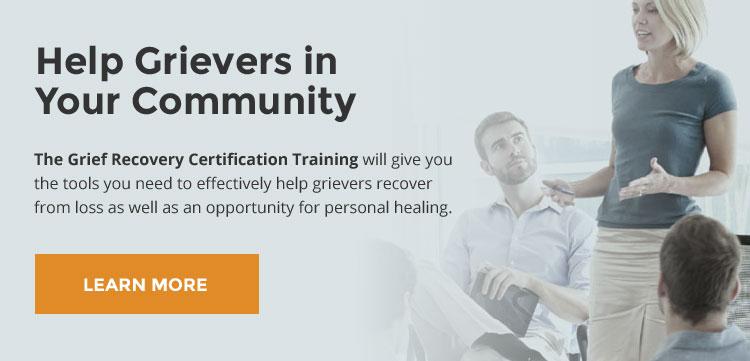Yesterday, my wife said something that hurt my feelings. Immediately afterward, I went to my standard default setting: eat that feeling.
I can go right to anger when I get hurt. After our interaction, I took a shower and thought about my reaction. How would I play it out? How would I react to being hurt by my wife? In the past, I would do the stereotypical guy thing. I would get angry and gruff. Many guys play it that way, but through the Grief Recovery work, I’ve learned to also tell the truth about myself, which feels better.
After the shower, I returned downstairs and said, “Hey, you know what you said really hurt my feelings?” She knew it, and she said, “I’m sorry. I should have thought about it.” We discussed how we could have done things differently. And that’s what we do because of Grief Recovery.
I’m not a big crier, but I am comfortable doing my emotional work. I’m comfortable showing my kids that I don’t just eat all my emotions and hope they never come up again. That’s not the example I want to be for my three young boys or my little girl. I want you guys, specifically the dads and husbands, to think there’s a way to have both. To be masculine, to be the guy you want to be and to have access to and communicate your feelings.
What are you teaching your kids? How are you teaching them? How do you process hurtful things that happen? And let’s not pretend that hurtful things don’t happen to us. We’re all sensitive in different ways, and there are ways we can approach and deal with that stuff other than just stacking it up because, as you know, it doesn’t just go away. It eats us up inside, and we’re 50 pounds overweight, or we have a little bit of a drinking problem or a big drinking problem, or we like to take some pharmaceutical pills, or we check out way too much on our responsibilities because we watch too much tv, or we surf too much of the internet, and the list goes on.
You use distractions because you have all of this emotional energy in you that you think you’re stuffing, compartmentalizing, and doing a great job with, but you’re not. It’s there, and it’s bringing everyone down around you. Your quality of life could be on such a different level if you go do this work.
I’m striving for that, even though I’m not perfect. If you don’t know how to do that as a father, as a leader of young boys or girls, or the people around you, if you don’t know how to have access to both of those things, we can help you with that.


